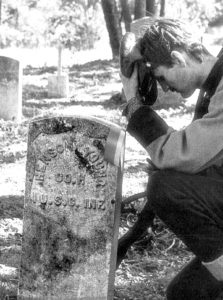Henson Young 1846-1930
Occasionally, in the dry language of legal documents, there are some real stories. Jacob Mock, a farmer north of the village, specified in his 1831 will that "My Negro boy Henson...." was to be freed at age 26 and given ten dollars in cash and a good suit of woolen clothing. Mock took pains to ensure that his "executors provide for him so he shall not fall into a state of slavery again by operation of the laws of the state in which we live."
The three witnesses to Mock's will were all Quakers; perhaps they encouraged the old man's generosity. Or maybe there was even a family connection: census records indicate that Henson had at least some white ancestry. We may never unravel the whole story.
We do know that Henson fathered a child, also named Henson [Young], who was born into slavery on January 6, 1846. The mother was probably a slave of Mock's neighbor, William Russell, Sr. In 1864, late in the Civil War, young Henson-by then freed by Russell-made his way to Baltimore, Maryland, and enlisted in the 1st U.S. Colored Troops Infantry. He was one of several African Americans from Waterford who served with Union units.
Henson senior, meanwhile, had been working hard and become prosperous, probably as a teamster. After the war he filed a claim with the government for six horses valued at $1,120 that had been taken by Waterford cavalry officer Sam Means in 1862 for his Loudoun Rangers.
Henson junior inherited his father's way with horses. I remember him driving a fine team when I was a child. He died in 1930.
An excerpt from the book, "When Waterford & I Were Young", by John E. Divine.
